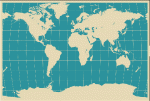Michael Sells’s overpraised pamphlet (there is a story that former US president W.J.Clinton was so fascinated with this sloppy fiction that he (in his intimate circle) referred to it as one of his favorite contemporary politics/history books.
Croatia in the Early Middle Ages is the first volume of the intended 5 volumes series that intends to present to the wider audience (in French and English editions) the, in the alchemist parlance, “quintessentia” of Croatian culture and civilization, spanning thirteen centuries (7th to 20th ).
I wouldn't comment on technical & pedagogical aspects of this book (nouns, declensions, adjectives etc.) As a native speaker of Croatian, I can see this book as (at best) an effort to give reader some basic stuff to linguistically get by in what used to be called "Serbian or Croatian diasystem" (funny phrase) or “Serbo-Croatian” language.
Michael Sells’s overpraised pamphlet (there is a story that former US president W.J.Clinton was so fascinated with this sloppy fiction that he (in his intimate circle) referred to it as one of his favorite contemporary politics/history books.
This book is a kind of disappointment. I am having Dedijer, the author of a few worthy and intriguing history books on my mind- not this trashy propaganda consisting of chunks of unverified and sloppily pasted lists, black-and-white generalizations and dubious analyses based mainly on hearsay.
I suppose the reason why this book usually gets unbelievably good ratings is its simplicity: essentially, the title should read “Complete idiot’s guide to Western stereotypes on hows and whys of Yugoslavia’s collapse”.
This book is a fine example of prejudiced and politically correct diatribe against Croat "nationalism" (the central stigma for "liberal" kowtowing historical revisionists thinly disguised as professionals in the field). One thing cannot be dissected in full measure, because it lies beyond the scope of the review.
Malcolm's "Bosnia: A Short History" has a few virtues and, alas, numerous faults. Yet- those faults lie mainly in that shadowy region of unspoken word: Malcolm is vociferously silent on those facts that would erode the book\'s central thesis (and which is buried deeply enough for an uninformed reader (some 99% of the general reading public) to diagnose the author\'s partisanship): this is a book on and about Bosnian Muslims, with Croats and Serbs appearing on the scene only because they are unavoidable (well, one cannot easily write a chronicle of a region ignoring two thirds of its populace) or as betes noires whose stale nationalist mythologies ("hands off Bosnia!") are Malcolm\'s special concern.
































































 Kontaktirajte nas
Kontaktirajte nas